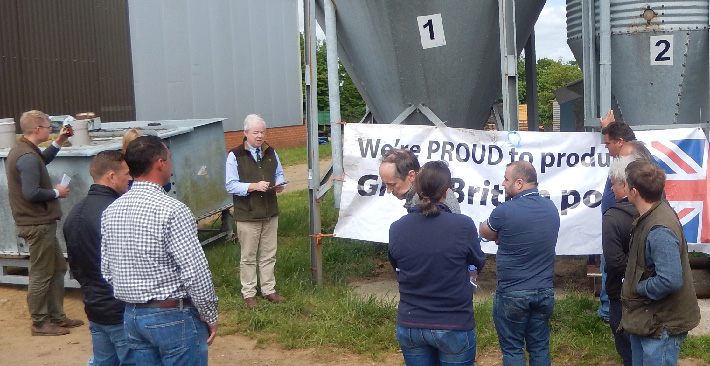Pig pricing has turned into something of a fairground ride with “swings and roundabouts” being the main features and although the SPP managed to put on 1.13p to stand at 146.47p, this is still way out of step with recent movement in EU mainland prices which included the influential German producer price adding another 5 cents to stand at €1.85, which is equivalent to 164p in our money.
There was also something of a lack of conformity as far as “weakly” contribution prices were concerned, with increases of anywhere between 1-3p and the majority were quoted in a wide 140p-148p range.
Spot bacon supplies have remained limited with virtually everything going on contract, but where there were any deals done these were generally in the 150p + region.
Cull sow quotes have nudged higher, up by around 1p, with a fairly wide spread between offers for large and small lots of 98p and 103p/kg and in most cases it has paid producers to haggle with numbers slightly on the tight side, although the Euro traded today worth 88.56p which is almost exactly the same as its value a week ago.
Weaner prices are continuing to improve but not at a particularly great rate, with the latest AHDB 30kg average quoted at £50.16 and 7kg piglets at £36.25.
However, as reports continue to emerge of further reductions in the availability of pig meat in the Far East this should filter through to the weaner market in the months ahead and will certainly provide finishers with a better potential return, assuming that feed prices remain in check.
Cereal values remain at manageable levels as far as pig producers are concerned with London feed wheat quoted for July at £160/t and September at £153/t.
Barley still enjoys a significant discount with futures deals for July at £138/t and September at £140/t.
Spot sales of UK feed wheat on an ex farm basis have been in the £150 region and 2019 cereal harvest prospects in the UK are looking reasonably favourable in terms of yields.
Protein prices have however remained at generally firm levels, with Hipro soya for July-October traded at £316/t and for November-April 20 at £321/t.
And finally, although the global pig market continues to be dominated by the ASF situation in China and neighbouring countries, much closer to home comes the alarming news of a Polish farm with more than 8,000 pigs going down with ASF. Even more worrying is that this particular outbreak is linked to domestic pigs rather than in wild boar populations.
This however, underlines the need for UK producers to continue to step up biosecurity controls on their units and to treat this as a priority, rather than the last thing on their bucket list.
The three main rules for profitable pig production remain “Health, Health and Health”.




